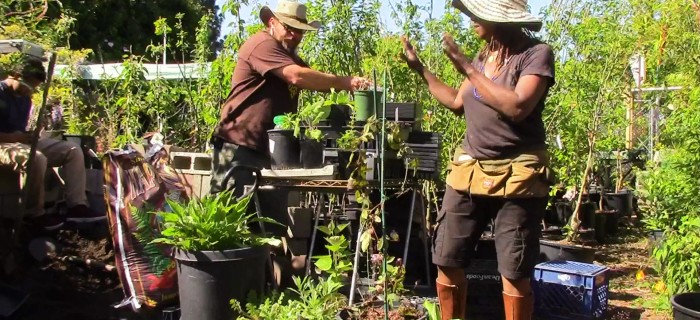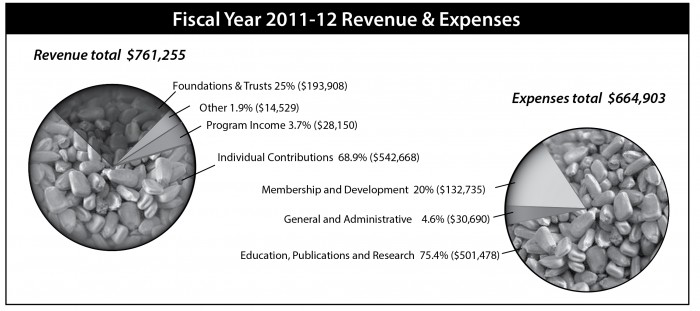2012 Annual Report
2012 was the year that movements for food security, food justice and food sovereignty adjusted course. In the face of continuing food crises, South, and family farmers, urban gardeners, food and farm workers and responsible consumers of the Global North are coming together; converging in their diversity. The food movement is building global and community power and Food First is learning and working alongside the men and women who are actively transforming our food systems. We adjusted our course as well, deepening our food systems development work locally and internationally, forging the practices that inform our analysis and materials.
Through our international Farmers Forging Food Sovereignty program, we continued our partnership with the Indigenous-Farmer Network the Development of Agroecology (RICDA) in Mexico through the Pollinator Conservation Project. This year RICDA expanded to eight organizations in the states of Tlaxcala, Puebla, Guerrero, Oaxaca and the state of Mexico. The farmer-promoters of RICDA trained over 200 farmers in pollinator conservation, habitat restoration, soil and water conservation and agrobiodiversity conservation. They also held a national conference attended by 140 farmers and conservationists, and took to the airwaves with their own weekly radio program on agroecology and pollinator conservation to reach thousands of farmers in the state of Tlaxcala. The RICDA Pollinator Conservation Manual was made available on their Facebook page and over 350 hectares of new land was brought into agroecological and conservation practices.
The food movement is building global and community power and Food First is learning and working alongside the men and women who are actively transforming our food systems.
Food First’s Democratizing Development program is deepening understanding of global land grabs and spreading the positive experience of grassroots resistance through our action-research project Land and Sovereignty in the Americas. This research collective includes the Transnational Institute (TNI) and the Institute of Social Studies (ISS) in The Hague, Netherlands. Researchers and community activists Jun Borras (TNI), Phil McMichael (Cornell University), Alberto Alonso-Fradejas (ISS), Monica White (Detroit Black Community Food Security Network and University of Wisconsin), Tezozomoc (South Central Farmers, Los Angeles), Raj Patel, Miguel Altieri (UC Berkeley and SOCLA), Annie Shattuck (UC Berkeley), Tanya Kerssen and Eric Holt- Giménez of Food First, and others. The collective is producing activist-academic analysis on resistance to land grabbing in the Americas in both urban and rural settings, North and South.
We focus on the US food movement in our program Building Local Agrifood Systems. In 2012, our action research to measure the food security of restaurant workers shifted to the San Francisco Bay Area. We sit on the advisory committee of the new Food Labor Research Center at the Berkeley-based Labor Center and we work with the Restaurant Opportunities Center (ROC). Our agroecological support to urban farmers in the East Bay of San Francisco began with Dig Deep Farms, designing soil conservation terraces on their hillside farm. With Dig Deep, we launched the Urban Farmer Field Schools initiative to support farmers teaching farmers. Our support for the Oakland Food Policy Council (OFPC) continues, though they have moved to a downtown office as part of the process of becoming an independent local organization. This year the OFPC added eight new council members and is working with a broad coalition of partners to ensure all residents are allowed to grow food no matter what area of the city they reside in. OFPC also worked with the City of Oakland to enable backyard food growers to raise and sell plant crops on site, and they continue to support expanded regions of operation for mobile vendors of healthy food.



 Help Food First to continue growing an informed, transformative, and flourishing food movement.
Help Food First to continue growing an informed, transformative, and flourishing food movement.




